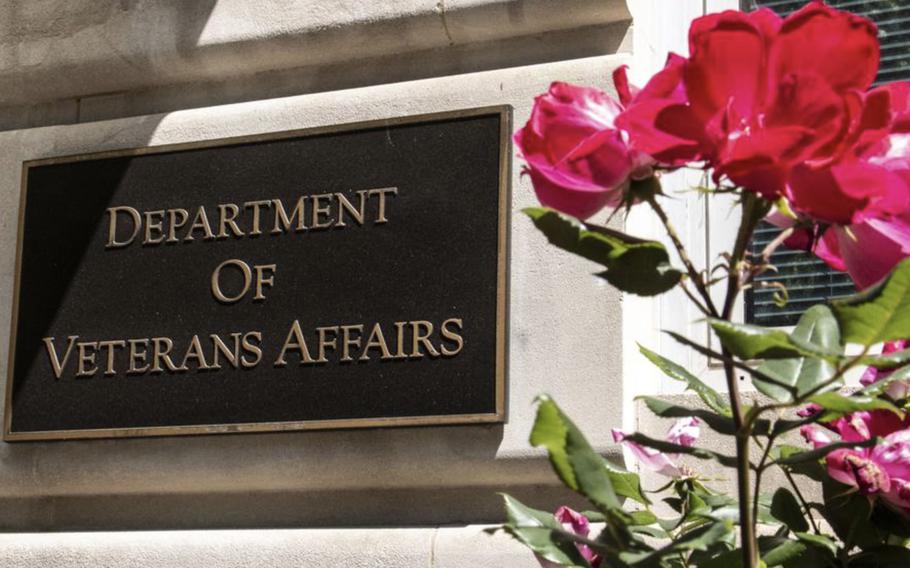(Tribune News Service) — Transgender American Veterans Association filed its second federal lawsuit in three months against the U.S. Department of Veterans Affairs for its refusal to provide gender-confirmation surgery in its health benefits package.
Despite the VA offering almost all other aspects of gender-affirming care for transgender veterans, the department doesn’t perform or cover confirmation surgery, which is proven to improve mental health and reduce the risk of suicide.
This new suit marks the next step for the advocacy group, which has been petitioning for gender-affirming coverage for over eight years. It also places additional pressure on the VA to follow through on its public promises.
“TAVA will not stand idly by as VA continues to discriminate against and breaks its promises to transgender veterans,” said Josie Caballero, acting president of TAVA, in the press release announcing the second lawsuit. “VA’s refusal to provide gender-affirming surgery is an affront to the dignity and well-being of transgender veterans. Gender-affirming surgery is not a choice for many transgender individuals — it’s often a critical part of our care that healthcare professionals consider medically necessary. Denying us access to these puts our lives at risk.”
The fight for gender-confirmation surgery can be traced back to 2016, when the advocacy group first filed a rulemaking petition with the VA but never received a direct response. TAVA President Rebekka Eshler says that VA Secretary Denis McDonough had made multiple public promises to grant the petition and initiate the rulemaking since taking office.
Represented by the Yale Law School Veterans Legal Services Clinic, TAVA filed a lawsuit with the U.S. Court of Appeals for the Federal Circuit in late January to prompt a court-ordered answer to the 2016 petition. The VA ultimately denied the petition and mooted the case as a result, said Alex Johnson, an intern involved in the lawsuit.
Johnson said the response from the VA to the 2016 petition was an “extremely short letter” that explained the department couldn’t grant the rulemaking petition while also simultaneously implementing the PACT Act, which expands health care and benefits for veterans exposed to burn pits, Agent Orange and other toxic substances.
“It essentially communicated that it could not walk and chew gum at the same time,” Johnson said. “It cannot simultaneously implement the PACT Act and provide gender-affirming surgery because, in order to provide gender-affirming surgery, it needs to update some estimates and data based on the impact of the PACT Act. That’s all the explanation VA gave.”
The second lawsuit argues that the VA’s response was discriminatory and violates the Administrative Procedure Act, Affordable Care Act and Constitution, Johnson said. She explained that TAVA is requesting that the Federal Circuit set aside the denial of the petition as unlawful and strike it down.
Another goal of the lawsuit is to access the administrative records, documents and receipts that help better explain the VA’s denial. Johnson said the rulemaking process can be lengthy, but it doesn’t necessarily have to be, and the VA has ways to accelerate it. For example, she said the VA adopted an interim final rule to provide abortion care after the PACT Act was enacted.
In addition, she said the VA has already submitted five drafts of the gender-confirmation surgery rulemaking to the Office of Information and Regulatory Affairs (IRA). This submission helps to understand the economic impact of the petition. Still, Johnson said none of the drafts ever made it to the Federal Register, where the rulemaking process officially starts.
“It’s unclear to TAVA why the PACT Act is such a barrier this time around. We’ll be curious to see what is revealed when the VA provides an administrative record,” Johnson said. “We are hopeful that the court will strike down the VA’s denial as unjustified.”
Although less than one percent of adults who serve in the armed forces identified as trans in 2014, trans individuals were twice as likely as other U.S. adults to have served, according to UCLA Williams Institute.
Many trans veterans rely on the VA for medical services and some gender-affirming care, Johnson said.
Under current policy, the VA offers hormone therapy and care for mental health, pre or post-operation, and long-term care following surgery, according to the VA website. However, since the VA doesn’t perform or cover gender confirmation surgery, Johnson said veterans are forced to find doctors outside their regular medical network for surgeries, which can be more costly and logistically challenging to reach.
Johnson said it’s rare for the legal team to file two federal lawsuits for the same client within a semester; however, they felt it was necessary. She said TAVA and trans veterans are excited to see the second lawsuit move forward and hope they will get justice.
“As we saw, with some of the extremely powerful declarations when TAVA filed in the first lawsuit, there are some trans veterans who are simply running out of time to receive these surgeries. There are other veterans who have tried to take these matters into their own hands and have almost killed themselves as a result,” Johnson said. “So, the VA’s failure to provide this care is consigning a uniquely at risk population to an increased risk of depression, anxiety and suicidal ideation. We think that’s unjust, it’s illegal and it’s a violation of everything that VA is supposed to stand for.”
The press secretary for the VA told NBC News the VA is unable to comment on any potential litigation.
(c)2024 The Middletown Press, Conn.
Visit www.middletownpress.com
Distributed by Tribune Content Agency, LLC.

Transgender American Veterans Association filed its second federal lawsuit in three months against the U.S. Department of Veterans Affairs for its refusal to provide gender-confirmation surgery in its health benefits package. (Stars and Stripes)